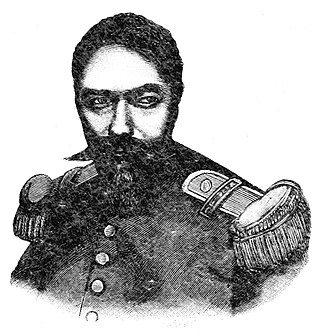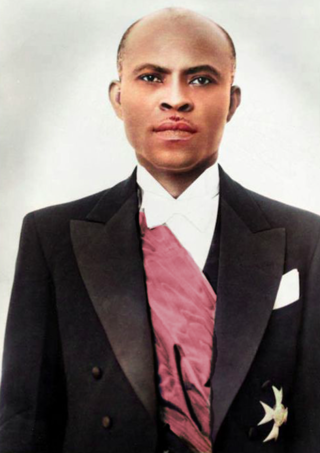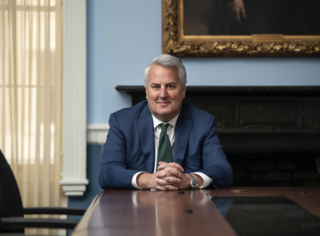A radiation oncologist is a specialist physician who uses ionizing radiation in the treatment of cancer. Radiation oncology is one of the three primary specialties, the other two being surgical and medical oncology, involved in the treatment of cancer. Radiation can be given as a curative modality, either alone or in combination with surgery and/or chemotherapy. It may also be used palliatively, to relieve symptoms in patients with incurable cancers. A radiation oncologist may also use radiation to treat some benign diseases, including benign tumors. In some countries, radiotherapy and chemotherapy are controlled by a single oncologist who is a "clinical oncologist". Radiation oncologists work closely with other physicians such as surgical oncologists, interventional radiologists, internal medicine subspecialists, and medical oncologists, as well as medical physicists and technicians as part of the multi-disciplinary cancer team. Radiation oncologists undergo four years of oncology-specific training whereas oncologists who deliver chemotherapy have two years of additional training in cancer care during fellowship after internal medicine residency in the United States.

Artibonite (French) or Latibonit is one of the ten departments of Haiti located in central Haiti. With an area of 4,887 km2 it is Haiti's largest department. As of 2015, its estimated population was 1,727,524. The region is the country's main rice-growing area. The main cities are Gonaïves and Saint-Marc. In February 2004 an insurgency tried unsuccessfully to declare Artibonite's independence.

Ouest (French) or Lwès is one of the ten departments of Haiti and located in Centre-Sud of the country linking the Great-North and the Tiburon Peninsula.

Sylvain Salnave was a Haitian general who served as the President of Haïti from 1867 to 1869. He was elected president after he led the overthrow of President Fabre Geffrard. During his term there were constant civil wars between the various factions. Eventually, he was overthrown in a coup by his eventual successor Nissage Saget, and Salnave was tried for treason and executed.

Dumarsais Estimé was a Haitian politician and President of the Haitian Republic from August 16, 1946, to May 10, 1950.

Jean-Baptiste Riché, Count of Grande-Riviere-du-Nord was a career officer and general in the Haitian Army. He was made President of Haiti on March 1, 1846.

The Regional Cancer Centre (RCC) at Thiruvananthapuram is a cancer care hospital and research centre. RCC was established in 1981 by the Government of Kerala and the Government of India. It is located in the Thiruvananthapuram Medical College campus in Thiruvananthapuram, the capital city of the state of Kerala. It was established as an expansion of the Radiation Therapy / Radiotherapy department of Medical College Trivandrum. It is a tertiary care center for the managements of all types of cancers. The clinics are mainly on Haematology, Lymphoreticular, soft tissue, bone, head and neck, breast, CNS, gynaecological, urinary, chest, gastro, paediatric oncology and thyroid.
Dessalines wrongly referred to as Marchand-Dessalines, is a commune in the Artibonite department of Haiti. It is named after Jean-Jacques Dessalines, a leader of the Haitian Revolution and the first ruler of independent Haiti. It is known as the First Black Capital of the New World.

Uppsala University Hospital in Uppsala, Sweden, is a teaching hospital for the Uppsala University Faculty of Medicine and the Nursing School. Uppsala University Hospital is owned and operated by the Uppsala County Council in cooperation with the university and serves, together with Enköping hospital in Enköping, as the primary hospitals for Uppsala County. It also fills the function of a tertiary referral hospital for the Uppsala/Örebro health care region and, for certain specialities, a tertiary referral hospital for the entire country of Sweden.

Staten Island University Hospital (SIUH) is a member hospital of Northwell Health. It is a major tertiary referral center in Staten Island, New York City.
Haitian art is a complex tradition, reflecting African roots with strong Indigenous, American and European aesthetic and religious influences. It is an important representation of Haitian culture and history.
Master of Medicine (MMed) is a postgraduate professional clinical degree awarded by medical schools to physicians following a period of instruction, supervised clinical rotations, and examination. The degree usually takes three years to complete, but may take up to four years in some countries. It is awarded by both surgical and medical subspecialties and usually includes a dissertation component. The degree may complement an existing fellowship in the chosen specialty or be the sole qualification necessary for registration as a specialist.

Sher-i-Kashmir Institute of Medical Sciences, often abbreviated as SKIMS, is the largest medical institute under State Legislature Act in Srinagar, in the Indian union territory of Jammu and Kashmir.
Jean C. Alexandre was a Haitian diplomat who served as Ambassador of Haiti to the United Nations from 2002 to 2004. Aside from his diplomatic involvement, Jean C. Alexandre dedicated his life to the practice of medicine, as a Diplomate of the American College of Obstetrics and Gynecology.

Henri Ronald Ford is a Haitian-American pediatric surgeon. He previously served as chief of surgery at Children's Hospital Los Angeles and Vice Dean for Medical Education at the Keck School of Medicine of the University of Southern California. He is currently appointed Dean of the University of Miami Miller School of Medicine, effective 1 June 2018. Following the 2010 Haiti earthquake, Ford returned to Haiti to provide medical assistance to earthquake victims.
Joasil Déméus Débrosse was a Haitian journalist and philanthropist. He ran for the Haitian Congress twice and lost. He believed every child deserves free basic education, clothing, and food. His vision continues through his foundation. He died on January 13, 2013, in a hospital center in Port-au-Prince. He was the Radio Star Presenter of Morning Train, a program broadcast every morning on Radio TV Zenith.
Yvonne Sylvain was a Haitian physician who was the first female medical doctor from the country. She was also the first woman accepted into the University of Haiti Medical School, and earned her medical degree in 1940. After graduation, she worked as a specialist in obstetrics and gynecology in the Port-au-Prince General Hospital. As Haiti's first female practitioner, she played an important role in providing improved medical access and tools for Haitian citizens. Among her other accomplishments, she was also one of the voices fighting for physical, economical, social, and political equality for Haitian women.

Jay Steven Loeffler was an American physician at Massachusetts General Hospital where he served as Chair of the Department of Radiation Oncology since 2000. He was the Herman and Joan Suit Professor of Radiation Oncology and Professor of Neurosurgery at Harvard Medical School.

Project Medishare is a 501(c)(3), non-profit organization registered in the State of Florida. It was founded by Dr. Barth Green and Arthur Fournier from the University of Miami School of Medicine. The organization was created in 1994 to improve healthcare in Haiti. Since then, it has been committed to help its Haitian partners by establishing and funding sustainable programs, providing technology and equipment to hospitals, clinics, and other affiliated programs and training of Haitian physicians, nurses, and allied health professionals.












